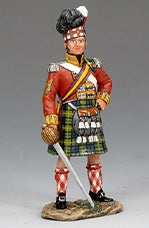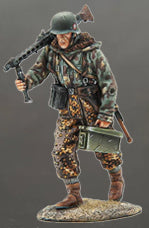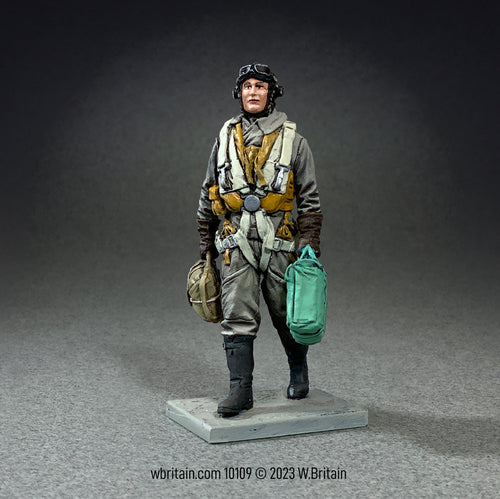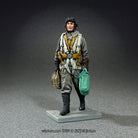10109 - RAF Bomber Pilot, 1940-45
Couldn't load pickup availability
NEW! IN STOCK!
RAF Bomber Pilot, 1940-45
From 1942 onward, the British bombing campaign against Germany became less restrictive and began targeting both industrial infrastructure and the civilian populous. At the start of the war the rules of engagement were limited to air raids on targets of military importance such as ports and railways. However, after a German bomber raided London, Prime Minister Winston Churchill ordered a retaliatory raid of Berlin. The damage was minor but still sent Hitler into a rage. He ordered the Luftwaffe to level British cities, thus precipitating the Blitz. Attacks on residential and general industrial areas of cities continued throughout the rest of the war culminating in the controversial bombing of Dresden in 1945.








